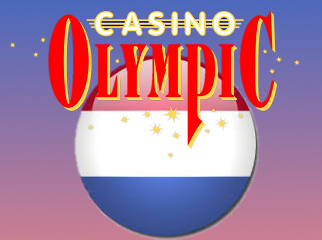 Olympic Casino Eesti AS, a subsidiary of Eastern European casino operator Olympic Entertainment Group (OEG), acquired Netherlands-registered holding company Siquia Holding B.V. earlier this month. At the same time, OEG established and registered two companies – Gametech Services Ltd. and Gametech Licensing Ltd. – in the British Crown Dependency of Jersey. In a note to the Tallinn stock exchange, OEG CEO Madis Jääger explained that the moves were intended to create a legal platform for the expansion of OEG’s gaming business, in particular the business of remote gambling, to which OEG has previously not paid much attention.
Olympic Casino Eesti AS, a subsidiary of Eastern European casino operator Olympic Entertainment Group (OEG), acquired Netherlands-registered holding company Siquia Holding B.V. earlier this month. At the same time, OEG established and registered two companies – Gametech Services Ltd. and Gametech Licensing Ltd. – in the British Crown Dependency of Jersey. In a note to the Tallinn stock exchange, OEG CEO Madis Jääger explained that the moves were intended to create a legal platform for the expansion of OEG’s gaming business, in particular the business of remote gambling, to which OEG has previously not paid much attention.
OEG isn’t alone in eagerly anticipating the arrival of the Netherlands’ online gambling draft legislation, which is believed to be making its debut sometime in April. It’s been suggested the legislation could be enacted into law by the end of the year, but not everyone is convinced that deadline will be met. Willem van Oort, CEO of GranViaOnline and organizer of the Gaming In Holland conference, told Global Betting and Gaming Consultants that a “volatile” political landscape didn’t bode well for passage in 2013.
On the plus side, van Oort believes the proposal to extend the brick-and-mortar casino 29% tax rate on gross gaming revenue to online gambling won’t fly. Most operators have complained that such a rate would make the Dutch market a profit-free zone, suggesting a taxation rate of 15% to 20% would be more appropriate/less intolerable and would help the Netherlands capture a stronger share of the .com market.
Van Oort suggested the Netherlands would attempt to mimic the moves made by Denmark in its shift to a liberalized online gambling market. That said, while the new Danish online market has been dominated by former state monopoly Danske Spil, van Oort believes it would be counter-productive for the Dutch government to give state-owned monopoly Holland Casino preferential treatment. Holland Casino is up for privatization and has already issued a request for proposals from tech companies to position it for a move online when the law allows.
Tjeerd Veenstra, director of Dutch betting monopoly De Lotto, just wants to be able to compete on a level footing with international betting firms. Veenstra told GamblingCompliance that his company is subject to “very strict” regulation while international firms “can do what they want and that creates an unfair situation.” State secretary of security and justice Fredrik Teeven recently told Dutch legislators that he would grant the Gaming Authority greater powers to deal with companies that flout Dutch law.
While many international firms have abided by new Dutch laws preventing them from advertising in the country, displaying Dutch flags on their sites or offering services in the Dutch language, other firms have relied on the fact that a sizeable percentage of the Dutch population speaks fluent English. In 2011, the government instituted a blacklist of companies for which banks are not supposed to process transactions, but compliance was optional. The government has since said that compliance with the new licensing conditions will be “strictly monitored.” But not enforced?
